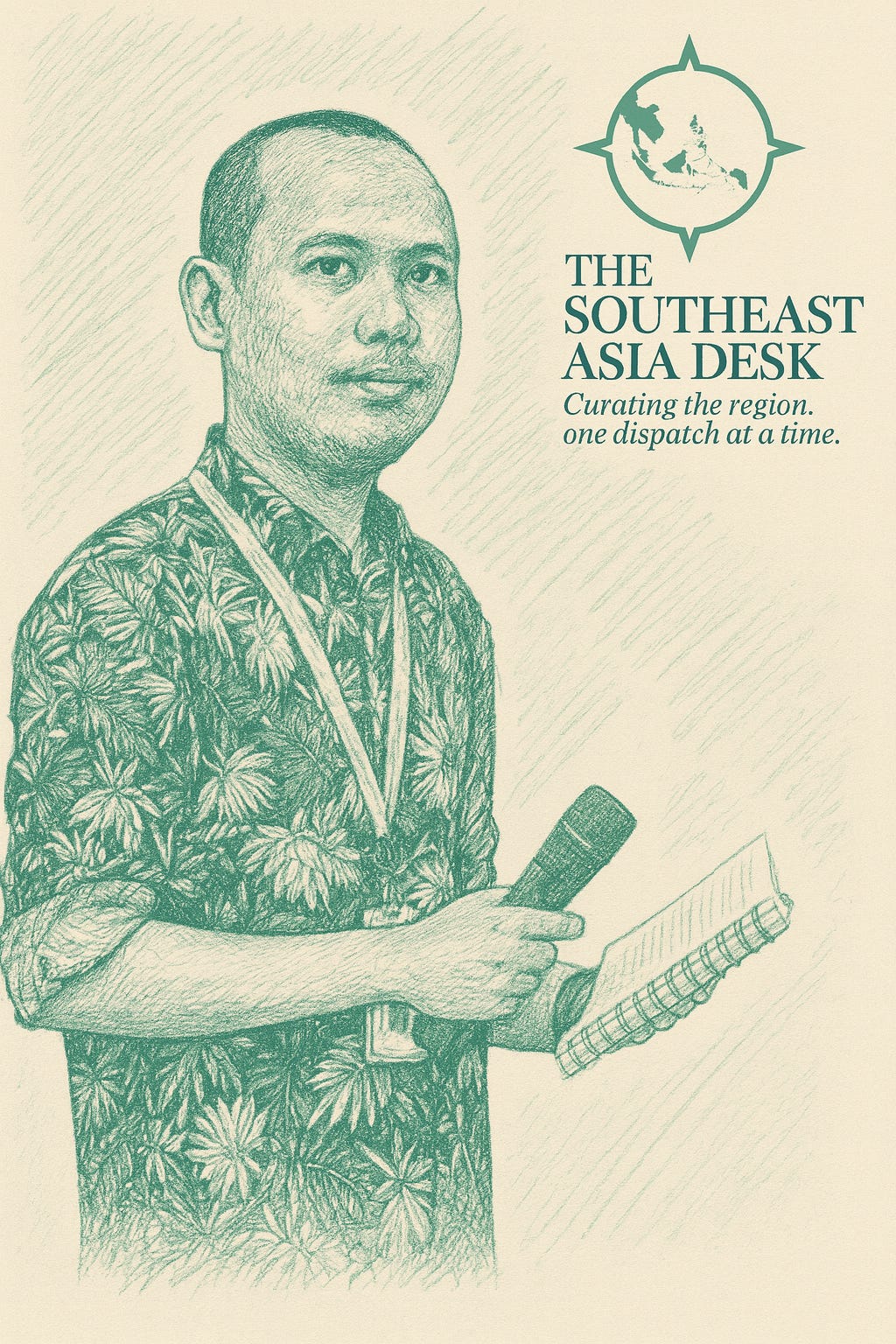Indonesians’ perceptions of the Middle East remain superficial
Alwi Akbar, Graduate Student, Middle East and Islamic Studies, Universitas Indonesia
On October 15, 2025, the Center of Economic and Law Studies (CELIOS) released a survey of 817 Indonesian respondents on their perceptions of the Middle East.
The discussion of its findings was engaging and introduced a fresh perspective, highlighting a growing concern about regional awareness in Indonesia.
This article will review and examine the primary concerns of the Indonesian public when engaging in substantial regional discussions, as opposed to employing a subjective approach to Middle East Studies.
The Mirage of Engagement
As I explore these discussions more deeply, I see that Indonesia’s Middle East and North Africa (MENA) region is still somewhat underrated regarding consistency and understanding. Compared to other regions such as Southeast Asia, Europe, and America, these areas still establish consistency in international relations dialogues.
The issues persist for a few weeks when the Middle East is brought up in Indonesia. Generally, these topics are not addressed in depth or within the institutional framework of the diplomatic process, particularly concerning the Palestinian struggle.
It is recognized that Indonesia’s attributes, particularly when discussing the MENA region, are frequently associated with Islamic connectivity.
Regarding the disclaimer, this approach is not objectionable; however, it is essential to acknowledge that every perspective entails inevitable consequences.
On the other hand, there are still many debates about the definition of the MENA itself regarding history, geography, geopolitics, and social identity, among the biggest challenges of the MENA study in Indonesia.
Indeed, we cannot deny that Indonesia and the MENA region have engaged in extensive cooperation across various sectors and bilateral relations for several decades.
The survey results indicate that Indonesians perceive Saudi Arabia, the UAE, and Qatar as possessing the most significant potential for economic cooperation.
A few months earlier, ASEAN, China, and the Gulf Cooperation Council (GCC) convened a summit to discuss the region’s economic and political issues.
The summit demonstrated multilateral efforts to broaden their influence and interests to other areas, regarding contemporary issues.
Indonesia, of course, demonstrates numerous initiatives aimed at security and humanitarian assistance for several MENA countries, notably in conflict zones such as Lebanon and Palestine, despite the rivalry with Israel.
The Indonesians’ impressions show that the government would actively provide humanitarian aid (45.3%) and diplomatic support for Palestinian issues (33.1%).
These findings illustrate the enduring support of the Indonesian public for social, diplomatic, and humanitarian initiatives in the region over many years, at least from a subjective perspective.
Indonesia and the MENA countries have had many historical moments, from pre-independence until now, from diplomatic to economic cooperation, that shape these nations’ relationships.
The 1955 Asia-Africa Conference was one of the most significant moments for strengthening the relationship among the elite. Also, grassroots interactions are powerful regarding identity connections among them, particularly when discussing Palestinian issues.
However, Indonesians’ problem when answering questions about geopolitical issues and institutions, like the Palestinian and the Gulf Cooperation Council, in detail, is the lack of connection between political dynamics and ideology.
It is proven from another survey by Universitas Indonesia a couple of months ago, when asked about Palestinian stance, most Indonesians answered that the majority supported Palestine. However, when asked about the “two-state solution”, there are divided in opinion.
From Constructive to Strategy Discussions
This picture shows the gap between the elites and the academics who believe that Indonesia’s position will support the “two-state solution” as a “realistic solution” to support the right and Palestinian independence regarding Indonesia’s diplomatic role capacity.
On the public side, which is the Indonesians, believe that there is no chance for a “two-state solution” as a conclusion for solving the Israel-Palestinian crisis. Mainly from the religious community, which is skeptical about the “realistic solution.”
There is nothing wrong with these clashes; both sides have shown the proof of their argument. The two-state solution has proved that Indonesia’s diplomatic stance agrees with that solution.
The survey results concluded that there is a gap between identity construction and realist political situations. Public will always use identity construction as a strong argument in MENA issues.
This gap is not unique in Indonesia, because in this case, most Indonesians viewed the Middle East as a symbolic role, and identity imagination as the birthplace of the Abrahamic religion and global solidarity.
However, the consequence is that it is difficult to distinguish between identity strength, diplomacy, or a political actor’s interests when trying to understand and connect with the reality of regional cooperation.
Public schools, universities, and social organizations rarely integrate MENA studies beyond identity and history; even policy discussions are often reactive rather than strategic.
These challenges should be solved for the public to bridge the identity subjectivity and regional political understanding.
It could start by increasing the literacy aspect through more public discussion about the definition of the MENA region and substantive institution cooperation among the region and sub-region countries.
The other side remains that constructive aspects could be used to maintain motivation and our national interest in the Middle East and North Africa region. These aspects enable the MENA to be consistently discussed, as in other areas, such as ASEAN, East Asia, Europe, and the Americas.
Therefore, this region is too complex to understand when subjectivity is used as an argument. Because of this gap problem, the MENA region discussion in Indonesia is still on the surface and underrated. A regional discussion is a trending topic that could disappear in a second, unlike in other regions.
These surveys should reshape Indonesia’s conversations about the MENA region in public and academic circles. If these gaps can be resolved, Indonesia could implement a regional policy that takes on new aspects of its strategic dimensions in the future.
(RHZ/QOB)






